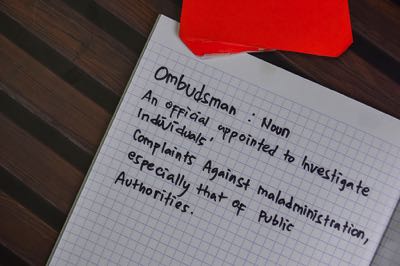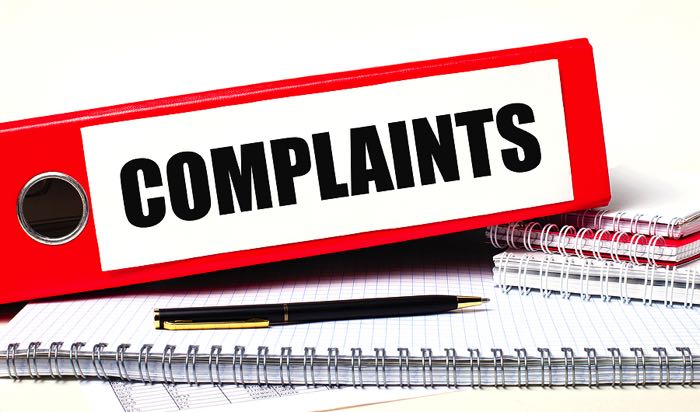 The legalisation of online gambling in the USA is the biggest thing to happen to the global betting industry in a very long time. The minute that individual states legalise gambling they take millions of dollars away from the illegal bookmakers who have operated for so long and put them into a legalised, properly regulated market.
The legalisation of online gambling in the USA is the biggest thing to happen to the global betting industry in a very long time. The minute that individual states legalise gambling they take millions of dollars away from the illegal bookmakers who have operated for so long and put them into a legalised, properly regulated market.
Given the maturity of the online betting market in Britain, American operators have spent a lot of time learning the lessons of regulation from across the Atlantic. But what exactly are the protections offered to British punters? Is there an ombudsman as in other industries or do customers have to look at other routes? Join us as we investigate.
Is There a Gambling Ombudsman?

The short answer is no. There is no ombudsman for the betting and gaming industry as there are in so many other areas of the economy and life, such as financial services, energy providers and legal services.
At the same time it should be noted, however, that the gambling industry is by no means unique in not having an ombudsman. It is the case in many different industries across the country, but, as with these industries, the betting and gaming market is served by other means of redress and support for customers. Moreover, there is talk of things changing and potentially the introduction of a gambling ombudsman.
Changes Afoot?
The gambling industry has changed almost beyond recognition over the last 20 years or so. Whereas punters could only get a bet on in a betting shop or at a racecourse in the not too distant past, the vast majority of bets are now placed via online sportsbooks and more specifically, by mobile.
Alongside the growth of online sports betting has come an explosion in the number of online casinos, slots and games sites. The problem, as in many other areas heavily affected by technology, is that the speed of change has not been matched by regulation. While the British government has been promising wholesale reform to the industry, the implementation has been repeatedly delayed much to the frustration of campaigners, punters and betting companies alike.
Chief among the new regulations will be new safety mechanisms to ensure that problem gamblers do not continue to suffer from malpractice and light-touch regulations as has been the case previously. Some of those involved in consultations or just making arguments from outside have suggested that the creation of an independent gambling ombudsman is the only way to really keep the industry in check and ensure that customers are fairly treated.
Problem Gambling
There is broad understanding that, at its most acute and dangerous, problem gambling is a health issue which must ultimately be treated by the NHS. However, proponents of stricter controls – including controversial affordability checks – suggest that an ombudsman, fully independent of the gambling industry and with the teeth to rule on disputes, impose fines and even to revoke licences, is the only way to bring poor actors to heel. Advocates for an ombudsman believe if it was given enough power and its decisions were totally binding and final, it could make a real difference.
It remains to be seen what the detail of any new legislation will be but it seems very much as though the introduction of an ombudsman will remain as a threat to betting companies should they not clean up their act. That approach will be to the dismay of campaigners for change but the gambling industry has form for implementing change when new legislation is threatened, just think about the self-imposed changes to advertising ahead.
The other main reason to think that talk of an ombudsman may be more bluster than reality is that there are several bodies already involved in ensuring that the gambling industry treats British customers fairly. Let’s have a look at who punters can currently turn to in the event of a dispute with a bookmaker.
How Can You Complain?
For all that the betting and gaming industry is fiercely competitive, with companies working hard to attract and retain customers, problems inevitably arise between customers and bookmakers from time to time. While many people are calling for better, stronger options for punters, there are currently several ways to raise a complaint or try and resolve an issue.
The Gambling Commission
 In order to legally take sports bets or casino stakes from customers in the United Kingdom, betting companies must get a licence from the UK Gambling Commission. As per the official UK Government website, the Gambling Commission “regulates arcades, betting, bingo, casinos, gaming machine providers, gambling software providers, lottery operators, external lottery managers and remote gambling (online and by phone) that use British-based equipment.”
In order to legally take sports bets or casino stakes from customers in the United Kingdom, betting companies must get a licence from the UK Gambling Commission. As per the official UK Government website, the Gambling Commission “regulates arcades, betting, bingo, casinos, gaming machine providers, gambling software providers, lottery operators, external lottery managers and remote gambling (online and by phone) that use British-based equipment.”
As you can see, the Gambling Commission has a very broad remit and it sets slightly different tests for businesses in different areas of the gambling industry with the aim of ensuring fair treatment for all users. They have three main, stated aims, the ordering of which some may find interesting, and which can broadly be described as:
- Stopping gambling being linked with crime, either through causing it, facilitating it, financing it or in any other way being connected with it;
- Keeping gambling fair, transparent and open;
- And stopping children and other vulnerable groups from being hurt or exploited through gambling.
There are some areas where the Gambling Commission does a very good job. For example, they have been of much help for people who are worried about their gambling. They have also worked reasonably well with bookmakers to ensure customers are verified to stop money laundering, and they also ensure that gambling businesses keep customer funds ringfenced in separate accounts.
However, the Gambling Commission is not a great place to turn for customers who encounter an issue. Indeed, their advice is to raise the complaint with the bookmaker in question, which is hardly what a distressed punter wants to hear.
Independent Betting Adjudication Service
 Any reputable betting company will not only be licensed by the Gambling Commission but will also be signed up to the Independent Betting Adjudication Service (IBAS). IBAS is approved by the Gambling Commission and works with gambling businesses and their users to try and help settle their disputes fairly.
Any reputable betting company will not only be licensed by the Gambling Commission but will also be signed up to the Independent Betting Adjudication Service (IBAS). IBAS is approved by the Gambling Commission and works with gambling businesses and their users to try and help settle their disputes fairly.
As the name suggests, IBAS is an independent body. They work closely with the betting industry and have a great knowledge of the sector but they are not allied with any particular bookie or online casino. Critics argue they are not as independent as they should be and tend to favour operators rather than customers but there are many times when they have helped punters obtain a favourable outcome.
Disputes are settled by the IBAS Adjudication Panel who gather evidence relating to the rules and practices of betting companies and the behaviour of gambling company employees and, indeed, customers. From there, the Adjudication Panel will make their decision which is binding on registered operators (up to a maximum of £10,000) but not on consumers who can choose to pursue their complaint via the courts if they wish.
You might think that calls for a gambling ombudsman are somewhat strange given the presence of IBAS. However, IBAS themselves have joined these calls having become alarmed at the decline in the number of disputes that it has dealt with in recent years. The percentage of disputes settled in the favour of punters has dropped and so IBAS is worried that they are not hearing enough cases and that this reflects poorly on the industry.
Advertising Standards Agency
 Gambling companies spend a lot of money on advertising. Whether they star Ray Winstone, Peter Crouch or Chris Kamara, you’ll have no doubt seen countless TV ads for bet365, Paddy Power, Ladbrokes and many other betting companies.
Gambling companies spend a lot of money on advertising. Whether they star Ray Winstone, Peter Crouch or Chris Kamara, you’ll have no doubt seen countless TV ads for bet365, Paddy Power, Ladbrokes and many other betting companies.
It is the job of the Adverising Standards Agency (ASA) to ensure that these adverts comply with all the applicable rules and regulations. In addition to checking that gambling companies to not make any false claims in their advertising, the ASA checks that ads are socially responsible.
In practice, the ASA checks are designed to ensure that vulnerable groups such as problem gamblers and children are not targeted, exploited or likely to be harmed by gambling advertisement. The ASA also makes sure that gambling is not associated with sexual success, is not seen as a rite of passage and is not a solution to financial problems. Applicable terms and conditions need to be made clear including the requirement of some element of skill to any betting game.
Punters who are unhappy with the behaviour of a particular betting company as displayed through their advertising can raise a complaint to the ASA via their website. However, typically the ASA does not have far-reaching powers and often the best outcome any complainant can hope for is that an advert is removed or altered.
